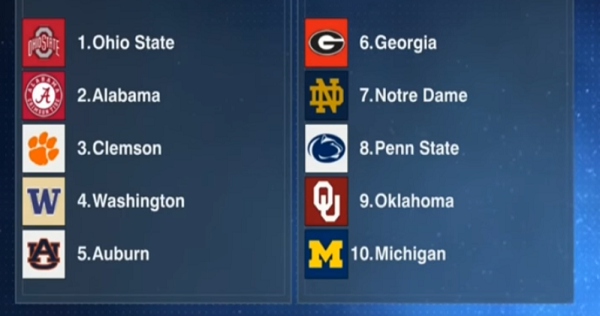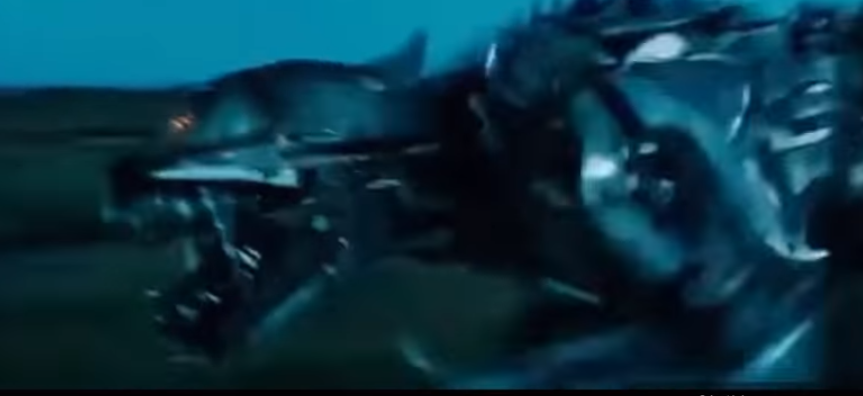
Phil Steele absolutely publishes the bible of college gridiron guides.
In a middle age paradise of gaudy useless numbers when weighed against the important lessons in life, the 747-jumbo-sized decadent preview of predicative soothsayer goodness, foretelling how a junior wide receiver at New Mexico State will break the politically correct new rules of campus and engage in a squirt gun war before catching 11 ball for 202 yards against Florida Atlantic, the periodical is an absolute necessity for a fanatic. And unfortunately, the majority of millennials are completely out of touch with the concept of a magazine, as they should be resulting from an unhealthy attachment with their dubious devices, along with the modern nightmare of bookstore chain of Barnes & Noble.
The disjointed peregrination to attain a physical copy of the magazine was eventful as well as telling, and is an example of the eerie phenomenon mid-20th century science fiction becoming reality. Ray Bradbury will always have a voice and Fahrenheit 451 celebrates the preciousness of First Amendment liberties and the intimate and wondrous experience of actually handling and interacting with a book. His best line comes not from the iconic dystopian literature barbecue of censorship, but from the short story, A Story Of Love.
“She was the fine peaches of summer in the snow of winter and cool milk for cereal on a hot early June morning. Whenever you needed an opposite Anne Taylor was there. And those rare few days in the world when the climate was balanced as fine as a maple leaf between winds that blew just right, those were the days like Ann Taylor, and should have been so named on the calendar.”
That’s true love in describing one of the rare gifts from God. Ironically, my ex is a dutiful and compassionate English teacher named for Ms. Taylor, and I didn’t know at the time I first read the quote as a teenager, that an actual future love was being beautifully described. Without that tangible copy of Bradbury’s collected short stories, I would have never known. But, I digress, with the existence of multi-faceted plot in the quest for the impossible football preview, it was like the Beatty and the other men from the firehouse, were foiling my plan to engage in a simple free market transaction at every conceivable juncture.
I fully admit that I am an egregious connoisseur of college football, and how the sport exploits players and provides a forum for alpha males to architect their own set of rules in existing as the highest paid state employee in most cases, that makes me a bad person and a hypocrite. But that is water under the bridge, as admission is akin to justification.
My first destination to purchase a copy of the Phil Steele publication the old school way was logically Barnes & Noble. Sadly, even in the Seattle area, which has a very literate population, the mom and pop bookstores have dissipated into the Puget Sound fog and mist of inevitability over the last decade, and the alternatives are few and far between. My logical conclusion is that a national franchise, such as B & N, would surely have a complete magazine rack teeming with a complete set of college football previews. I arrived to support this thesis, and is was partially true, as every football periodical was represented including the Pink Frilly Lingerie Lady’s League Special, but with the notable absence of Phil Steele.
I asked the 20-something clerk what gives, and as he was validating my parking and sipping a latte verified via computer that the store had 30 copies. “Yeah, but where are they?” “The computer says they are here, so they have to be.” The statement is valid to a Brat Pack Cartoon Critique Societal Mind Control Major, as a computer is always correct, regardless of the circumstances.
His further response was not encouraging, as he surmised that they had not simply been put out on the floor yet and were somehow lost in the shuffle. I asked if he could take my name and phone number in establishing a line of communication, and he said that did not adhere to company policy. “Huh?” Win one for the bad guys.
Brimming with patience, I visited the bookstore a week later, as corporate directives do not allow phone calls, and this time interacted with a 20-something gal, who was actually in charge of the entire magazine section. As soon as I uttered Phil Steele, she shook her head and released the Hound’s truth to me that it was a “distribution issues” and “you’re not the first”. “But the computer says they’re here,” I retorted. She proceeded to give me a lecture on the dangers of microaggressions and offered me a cup of peace tea. We are now allegedly “dating”, which simply involves attending a yoga seminar for the mind once a month at the local community center. I am not allowed to speak, only whisper.

This was all out war, and I mounted an spirited campaign to call every book seller within a ten mile radius that still embraced the concept of traditional phones to inquire about Phil and the availability of his priceless guide. Half Price Books has a used magazine rack, while the other four independent establishments were not in favor of the violence of football. Again this is Seattle we are talking about.
Desperate and feeling marooned in this technocratic world of powerful digital nuances and the death of paper products as mediums for literature and information, I finally capitulated to the internet and visited Phil Steele’s actual web site in an attempt to order a copy. Of course the domain offered an app version of the preview, and finally delivery service of the actual magazine, but with an 80% markup.
As I await the arrival of the periodical through the still surprisingly functioning network of snail mail, the cold and callous intricacies of culture loom as deterrents for the near future. In the backwaters of the Amazon footprint, a consumer is no longer able to rely on the supply chain of a retail outlet of the time-tested ceremony of satisfactory customer service. Simply driving to the store to buy a product, is slowly being phased out by the ultra-efficient and frenetic delivery methods, fueled by smart phone interactions and digital transactions.
With the precarious infrastructure of inventory networks, it is a harrowing notion just how thin the margin is in keeping shelves stocked, especially with crucial goods such as food, beverages, and fuel. With just one involved hacked job into the computer system dispatching semi-trucks from warehouses to the storefront, and the entire process could be compromised for weeks, leading to shortages in resources and civil unrest.
The unacceptable performance of Barnes & Noble is quite telling, as the consumer apparently no longer dictates the selection of inventory at a live location, instead yielding to the complicated undertakings in statistical analysis and big data making the decisions. “Because the computer says so.”
I’ll take my chances grinding through the pages of a Bradbury novel in the park benches adjacent to the library and living vicariously through Guy Montague exploits to save literature and society, in anticipating a meeting with destiny and the Phil Steele football preview. My computer indicated that there were 330 in stock, so I should be worried.
